News | April 15th, 2015

Following the passing of the late Mayor Dennis Walaker, voters in Fargo will head to the polls on April 28 to choose a new mayor. For our election preview, HPR spoke with both candidates for mayor in Fargo about their vision for leading the city and the issues facing its citizens.
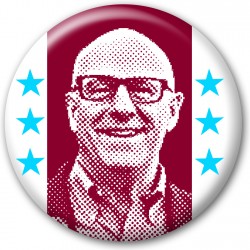
Brad Wimmer is a former Fargo City Commissioner and owner of Wimmer’s Diamonds in Fargo. He unsuccessfully challenged Mayor Walker in 2014.
HPR: How will you keep growth manageable in Fargo?
Brad Wimmer: We will work hard with all concerned and quickly set a vision on where this commission is heading. Are we stopping our southern growth and at what southern border? Planning, engineering, HBA and realtors will all have a seat at the table as we move our short and long-term vision forward. We will also prioritize our top infill projects and areas for infill.
HPR: What will you do to keep businesses hiring in Fargo and create good paying, quality jobs outside of the service industry?
BW: Work with our educators on making sure we are on the same page and having curriculum directly related to the current and future workforce. Providing a great downtown, strong police and safety, great schools and uplifting activity will keep people moving to Fargo. High education will keep them paid well.
HPR: Downtown Fargo has been thriving for a while, how do you maintain it?
BW: Work on several infill projects a year, identifying their location and getting them complete. Providing one new parking ramp for downtown will be a big start and I will get that done! Keep it safe to go downtown and working on private partnerships for art collaboration will be important. We are moving forward downtown, but not even close to full potential.
HPR: What will you do as mayor to prevent gentrification and promote local businesses?
BW: I am as inclusive as can be and will work continually to make Fargo open to all. Working with young startups and maintaining dialogue with all of our small business to help them get over the one year hump and stay in Fargo is important to me. Running a small business for 40 years and now transitioning -- that is a big advantage for me in this area.
HPR: Does Fargo need a mid-size venue/auditorium for the arts? Do you feel renovating or building one is necessary?
BW: A study is underway on what to do and where to go with our current civic center. I am hoping we come up with a 2,000 or so seat venue for the downtown area for a variety of events. This can be a focal point in the area and will pay dividends moving forward. City help and private funding will bring this to fruition.
HPR: Do you feel crime is under control in Fargo?
BW: No, we need to button down the gang activity and continue to support our law enforcement agencies with needed resources. Fargo needs to continue to be one of the “safe cities” in the upper Midwest. We are now in the midst of added negative activity coming to our region. It will need immediate attention.
HPR: How will you improve morale at the Fargo Police Department?
BW: Working harder with the new police chief and our strong force. I will have a new chief and city administrator on board quickly and will take a very positive direction to strengthen the morale. Interim Chief Todd is working hard to shore up the force as we speak; Chief Ternes had good numbers for the city, but something internally maybe was missing. Better commission liaison contact and a stricter review system will also help.
HPR: Do you feel we have enough affordable housing in Fargo? What can be done to get more?
BW: No we need more and a varied inventory of affordable ($70,000-$150,000) housing in the city. We need to work federally and with any programs available to make this happen. People are living at the Gladys Ray shelter and other areas that are meant to be temporary, but can get into nothing else. Another panel and team will be set forth and get these areas moving forward.
HPR: Did you disagree with the ND House failing to pass discrimination protections for LGBT citizens? What would you do as mayor to protect and promote the rights of LGBT Fargoans?
BW: Yes, I would have voted as the Senate did and was terribly disappointed in the House not supporting this bill. Fargo had passed this under Commissioner Sobolik’s lead several years ago and have seen only positives. We will continue with me in place to be an inclusive city and will protect and promote rights of the LGBT community.
HPR: As Fargo continues to grow, so will its diversity. As mayor what will you do to bridge the gaps between different races and ethnicities and protect the rights of minorities?
BW: One, we will try to set up additional neighborhood associations to work together. This is working in the Hawthorne, Jefferson and Roosevelt neighborhoods. We will need more open forums, better coordination with schools and parks to flush out inequities. I will be in these neighborhoods to promote and protect their rights alongside all of Fargo.
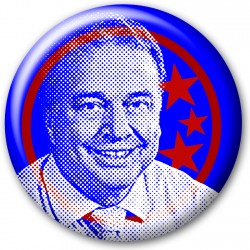
Dr. Tim Mahoney is a surgeon and longtime Fargo City Commissioner. He served as deputy mayor under Walker and since his passing has been acting mayor until the special election.
HPR: How will you keep growth manageable in Fargo?
Tim Mahoney: With smart growth we combine the needs of our community with the long-term vision of the planning department. It’s important to define our infill and sprawl, along with the infrastructure that will sustain our neighborhoods as we grow.
HPR: What will you do to keep businesses hiring in Fargo and create good paying, quality jobs outside of the service industry?
TM: We will continue to work with all partners, like GEDC, The Chamber, Million Cups and others, to help enhance the experience of living and working in Fargo. We have to become an embracing community with resources committed to retaining and growing our workforce.
HPR: Downtown Fargo has been thriving for a while, how do you maintain it?
TM: As long as Fargo is growing, downtown will do well. We are increasingly becoming a destination city. The city of Fargo should promote and help businesses become more successful, not only in downtown, but citywide. We need to continue to work on our infrastructure to be sure we meet the needs of businesses, as well as our citizens.
HPR: What will you do as mayor to prevent gentrification and promote local businesses?
TM: Fargo is a great place to grow a business. Our friendly business climate helps companies prosper. We need to concentrate on helping businesses with the resources necessary for their success. Fargo has a great reputation for steady growth, a trained workforce and a reasonable cost of doing business. We need to keep it that way.
HPR: Does Fargo need a mid-size venue/auditorium for the arts? Do you feel renovating or building one is necessary?
TM: The community has to become engaged in this and help guide us to the best solution for all. We have a wonderful opportunity to get it right. Private/public partnerships will be a welcome part of the discussion.
HPR: Do you feel crime is under control in Fargo?
TM: The world of law enforcement has changed dramatically since 9/11. New dimensions in law enforcement intelligence depend on strong community relationships between the police and our citizens. Focusing on prevention strategies, vigilance and public awareness will be a top priority for our police force.
HPR: How will you improve morale at the Fargo Police Department?
TM: With Chief Dave Todd’s leadership we have made great strides. We will continue to work on policy and improved communication moving forward.
HPR: Do you feel we have enough affordable housing in Fargo? What can be done to get more?
TM: I am committed to affordable housing for residents of all ages. Our planning department is conducting a housing study this year to identify the needs of the community and work with homebuilders to review future opportunities. I also believe a sensible historic preservation program is important for our aging neighborhoods. I’m impressed with the success of the Jefferson/United Way Initiative.
HPR: Did you disagree with the ND House failing to pass discrimination protections for LGBT citizens? What would you do as mayor to protect and promote the rights of LGBT Fargoans?
TM: The city of Fargo weighed in on this in 1999 and it was reaffirmed by the commission that we will not tolerate discrimination of any sort in our city.
HPR: As Fargo continues to grow, so will its diversity. As mayor what will you do to bridge the gaps between different races and ethnicities and protect the rights of minorities?
TM: We have programs today that help to bridge the gap between different races and ethnicities. As our community grows, we need to continue to look for opportunities to discover what is unique and wonderful about all the people who choose to live and work in Fargo.
On April 28, voters in Fargo will choose one new member of the Fargo City Commission. For a special election preview, High Plains Reader asked all six candidates questions about the race and the issues we feel are important. Here are their responses.
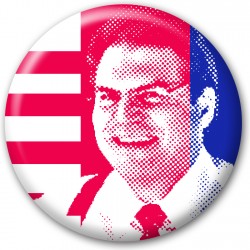
Cole Carley is the former president of the Fargo-Moorhead Convention & Visitors Bureau. He is retired and lives in Fargo, and he is pursuing a career as a public speaker.
HPR: What can Fargo do to retain its young people when they graduate? What can you do as city commissioner to entice them to stay here?
Cole Carley: I would rather direct our attention to the thousands of college and university students from outside our area who are attending school here. They’ve mostly come here from Minnesota and other Midwestern states and are experiencing our livability for themselves. They learned that winters here don’t last all year and this is a neat town that they didn’t expect to find. I think we should work with the Economic Development Corporation on a public relations campaign through the schools that tells a story of how great their lives can be here and provides links to job and housing information.
HPR: Do you support the diversion being built in its current path, design and method? If not, how would you stop it? If yes, what will you do to make sure it gets done quickly?
CC: I support the current diversion plan wholeheartedly. We need to keep working constantly with both Washington and Bismarck to emphasize the even larger amount of money they would incur should Fargo go underwater and the terrible toll on the lives and economy of both the Red River Valley and North Dakota should that disastrous event occur. Also, The Forum on April 13 carried a story on possible local funding through a continuance of the sales tax should federal aid prove futile. So at least we have options.
HPR: Do we need more parking in downtown Fargo? If so, how do we make it happen?
CC: We certainly need more parking in downtown Fargo. On Thursday, April 16 and Friday, April 17 the Downtown Partnership will hold public meetings to display the results of a study for several potential parking ramp projects. It’s not clear whether they intend these as city-funded or public/private partnerships or if there will be a charge for parking. A small charge for parking in a ramp would be a good way to help finance the cost of such a project.
HPR: Do you feel we have enough affordable housing in Fargo? What can be done to get more?
CC: Enough is a pretty relative term. We will probably never have enough affordable housing. Currently there are property tax incentives on new construction in Fargo and there is assistance on closing costs and deferred payment loans available for lower-income households. Some developers are beginning to create lower-cost housing in downtown and the surrounding neighborhoods so we’re making progress.
HPR: Did you disagree with the ND House failing to pass discrimination protections for LGBT citizens? What would you do as city commissioner to protect and promote the rights of LGBT Fargoans?
CC: I support LGBT rights and have for some time. Several years ago while at the Convention & Visitors Bureau I devoted a section of our budget for marketing to the LGBT segment of travelers. We were the first destination in North Dakota and one of the first in the tri-state area to do so. SB 2279 was a state legislative issue and therefore, I believe, not relevant to a city election. However, if Fargo has the legal ability to add non-discrimination for LGBT to our ordinances, I would support it as a city commissioner.
HPR: Are we doing a good enough job in Fargo of making growth manageable?
CC: Trying to manage growth is like trying to manage the weather or the economy: Much of it is beyond any control. What government can do is work on forecasting where the growth may occur and make preliminary plans for infrastructure. We also need to make sure that there is instant clear communications between city departments that are meeting with developers and the other departments that would be involved later. We should also make sure that there’s regular dialogue between the city with school and park districts to compare future plans.
HPR: Does Fargo get enough credit for its role in the state’s economic success? If not how do we change that?
CC: Unfortunately, Fargo will never get the credit we deserve for the strength and stability our city contributes to the state’s economy. It’s a consequence of consistency mixed with some jealousy. We can encourage and lend a helping hand to other parts of the state when opportunities arise but we should do this in a true spirit of giving, with no expectation of recognition or appreciation.
HPR: What are the biggest mistakes the Fargo City Commission has made recently? What would you do differently than what has been happening now?
CC: I prefer to seek out the good that people and organizations do rather than concentrating on the negative, which you appear to be doing here. My only concern lately is that I wish the new city hall had been bid with more alternates. Otherwise I feel they are on the right track.
HPR: Should partisan politics and the political parties be involved in Fargo city elections?
CC: I believe that parties or partisan politics have no place in city elections. The issues we address are local. Partisan bickering and “sides of the aisle” are dead weight we don’t need. Besides, that “aisle” belongs to the citizens.
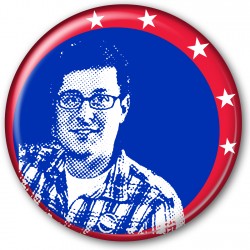
Tony Gehrig is a pilot with the 119th Fighter Wing of the ND Air National Guard. This is his third run for Fargo City Commission.
HPR: What can Fargo do to retain its young people when they graduate? What can you do as city commissioner to entice them stay here?
Tony Gehrig: It is clear that Fargo needs to attract new and young talent in order to continue our growth. What I can do as a commissioner is to encourage the private sector through lower, sustainable and predictable taxes. I am the only candidate who wants to lower taxes, specifically property taxes by 20 percent. Furthermore, I am the only candidate who does not want to raise taxes.
Lowering the cost of living will attract the next generation of workers. Continued wild spending and tax increases, endorsed by the other candidates, precludes folks from moving to Fargo and deters growth.
HPR: Do you support the diversion being built in its current path, design and method? If not, how would you stop it? If yes, what will you do to make sure it gets done quickly?
TG: While I do not oppose the diversion in theory, the reality is there are dozens of hurdles still in the way and the $1.8 billion number is drastically outdated. While we pour hundreds of millions into this project, we still need $250 million for the comprehensive inner-city plan. With or without the diversion, we must have this protection. We should focus on this plan first, while the diversion authority works out their issues. Finally, I voted no to the assessment district. I have no doubt the city will spend the sales tax irresponsibly and come back looking for more.
HPR: Do we need more parking in downtown Fargo? If so, how do we make it happen?
TG: Anyone who has driven downtown knows we need parking. The question is, who should pay for it? If you own a business outside of downtown, you as the owner are responsible for providing parking. If Duane’s Pizza asked the city for $1 million for new parking, the commission would say no. So why is it different downtown? The reality is, businesses downtown are responsible for parking, and they should carry the burden, not the taxpayers. However, I am open to a possible private/public partnership where the city provides the land and the business owners pay for the structure.
HPR: Do you feel we have enough affordable housing in Fargo? What can be done to get more?
TG: I am the only candidate who has proposed lowering taxes of any kind. Specifically, I am proposing a 20 percent decrease in property taxes. Here is how it would work:
a. 2013 General fund budget: $80 million
b. 2014 General fund budget: $85 million
c. 2015 General fund Budget: $90 million
d. 2015 General fund budget with 20 percent decrease in property taxes: $86 million … still larger than 2014’s budget.
The math works, and I truly believe people will spend the money they save locally, which will help grow the economy, encourage young families to stay and produce even more tax revenue through growth.
HPR: Did you disagree with the ND House failing to pass discrimination protections for LGBT citizens? What would you do as city commissioner to protect and promote the rights of LGBT Fargoans?
TG: I will leave partisan state politics to the politicians. However, locally we must be careful as to what laws we enact.
I am pro-individual liberty and pro-gay rights, to include the right to love who you want to love without government permission. That said there have been zero documented cases of housing discrimination in Fargo. Laws have unintended consequences, and though it might feel good to make a law outlawing discrimination against LGBT residents, it will ultimately affect housing costs, and may hurt more people than it might help, to include landlords who might be charged without cause.
HPR: Are we doing a good enough job in Fargo of making growth manageable?
TG: Currently in Fargo, we have 50 percent single family homes and 50 percent apartments. The average for a city our size is 60/40 respectively. The free market does a great job of managing growth, as proven in those numbers. When homes become more expensive, it is because they are in high demand, a good thing. When we see more apartments popping up it is because they are in high demand, a good thing. As commissioners, it is our job to ensure we keep taxes low, which encourages growth, and resist manipulating growth. The free market will dictate how our growth is managed.
HPR: Does Fargo get enough credit for its role in the state’s economic success? If not how do we change that?
TG: I am extremely proud to have grown up in Fargo and it is where my wife and I have chosen to raise our family. Fargo has always been the engine that drives our state. We have been recognized not only regionally, but nationally. With the boom out west, some of that focus was redirected, in many cases justifiably. However, the future of our state and its long-term growth resides here. As commissioner, I will work with our elected officials at the federal, state and local levels to ensure Fargo gets what it needs to continue our growth.
HPR: What are the biggest mistakes the Fargo City Commission has made recently? What would you do different than what has been happening now?
TG: Our leaders have gotten away from prioritizing our needs over our wants. We have many needs in Fargo: more police, new fire stations, new landfill, expand water filtration plant, sewer upgrades and inner-city flood protection. However, we continue to see wild spending and tax increases on the wants: $30 million city hall, $60 million convention center and much more.
We need a leader who will challenge conventional wisdom and speak truth to power. I have been unafraid to be the leading, and sometimes lone, voice on these issues, and I will continue as commissioner.
HPR: Should partisan politics and the political parties be involved in Fargo city elections?
TG: Our commission is nonpartisan, and it should stay that way. Party politics deter open debate, discussion and understanding. Unfortunately, many voters see a D or an R next to a name and automatically dismiss or choose based on those letters, without looking closely at what the candidates stand for. It is no secret I call myself a fiscal conservative, however that does not mean that I tow a party line. Quite the opposite is true. I will do what is right for Fargo, and right now that means fiscal responsibility and prioritization with focus on the needs, not the wants.
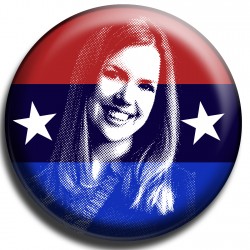
Mara Brust is an attorney in Fargo and serves on the Public Arts Taskforce for the Fargo City Commission. She ran in 2014 for Fargo City Commission.
HPR: What can Fargo do to retain its young people when they graduate? What can you do as city commissioner to entice them stay here?
Mara Brust: Millennials are now the largest percentage of the workforce. As a young professional who moved away for law school only to be drawn back home to Fargo, I will bring to the commission unique insight into what attracts young talented workers. Millennials looks for affordable housing near work and amenities. They want low cost transit and multiple options for getting around a city. This demographic expect diverse cultural attractions and entertainment options. These digital natives value a thriving tech and startup community. We must build a community that is welcoming to everyone.
HPR: Do you support the diversion being built in its current path, design and method? If not, how would you stop it? If yes, what will you do to make sure it gets done quickly?
MB: Permanent flood protection is critically important to the continued vitality of Fargo and the region as a whole. The protection provided by the diversion will provide the stability businesses need in order to plan for the future and the peace of mind potential residents seek before investing in homes in the area. Implementing flood protection in Fargo as soon as possible is vital to protect homeowners from sharply increased flood insurance rates. As a city commissioner, I would work with legislators in Bismarck to advocate for solutions to the important issues that our community faces, like the diversion.
HPR: Do we need more parking in downtown Fargo? If so, how do we make it happen?
MB: Yes. A parking structure downtown, paired with the right incentives for people to use it rather than on-street parking, would ease people's frustrations with both parking and congestion downtown. Ideally, such a structure would have shops on the ground level and living space on the top, so we are maximizing our use of space and keeping the streets of downtown vibrant. A convention center downtown could be the catalyst for such improvements.
HPR: Do you feel we have enough affordable housing in Fargo? What can be done to get more?
MB: Ensuring all residents can find housing that is affordable throughout all neighborhoods is essential to keep Fargo thriving. We need to ensure that changes in flood insurance don't make housing unaffordable for our residents. Likewise, we need to look for creative solutions to keep property taxes reasonable.
HPR: Did you disagree with the ND House failing to pass discrimination protections for LGBT citizens? What would you do as city commissioner to protect and promote the rights of LGBT Fargoans?
MB: I was very disappointed that the ND House did not pass SB 2279, which would have protected the LGBT community from housing and employment discrimination. No one should be denied opportunities because of whom they love. For our city to grow and thrive, we need a welcoming, inclusive community. As a city commissioner, I would advocate to make Fargo a leader on the issue and bring those protections to residents in our city.
HPR: Are we doing a good enough job in Fargo of making growth manageable?
MB: We must ensure that our growth is sustainable, by encouraging infill, revitalization of current structures and strong neighborhoods in addition to responsible, smart expansion. We need to provide a variety of housing choices, including affordable options, throughout the city. I also think we need to focus more on how we are expanding to the south. We should use this opportunity of growth to focus on building new strong neighborhoods, with mixed-use areas and amenities like parks and bike paths.
HPR: Does Fargo get enough credit for its role in the state’s economic success? If not how do we change that?
MB: As the largest city in the state, Fargo has always been recognized as an integral part of the state's economic success. Its diverse economy is essential for withstanding downturns in agricultural and other industries.
HPR: What are the biggest mistakes the Fargo City Commission has made recently? What would you do differently than what has been happening now?
MB: The greatest difference I would bring to the commission is my unique perspective. As a millennial who moved away for law school only to be drawn back home to Fargo, I will bring to the commission unique insight into what attracts young talented workers to our city. As an attorney, I have a unique ability to thoroughly research and evaluate an issue and look for creative solutions. In my career, I carefully follow rules of ethics and professional responsibility. As a city commissioner, I will work to ensure the Fargo City Commission meets the expectations citizens have of their government.
HPR: Should partisan politics and the political parties be involved in Fargo city elections?
MB: City elections are for nonpartisan positions and that should be respected.

Scott Wagner is a former Cass County commissioner and owner of Wagner Window Cleaning. He ran for City Commission in 2014.
HPR: What can Fargo do to retain its young people when they graduate? What can you do as city commissioner to entice them stay here?
Scott Wagner: The city can be a conduit with our local businesses and higher education. In the area of retention, some local high-tech companies are already looking at how to partner with higher education to compress the time it takes to obtain a degree. This could potentially help lower the cost of higher education in our area. Paired with an internship, graduates could leave college with less debt and a good-paying local job in hand, creating a great incentive to keep graduates here.
HPR: Do you support the diversion being built in its current path, design and method? If not, how would you stop it? If yes, what will you do to make sure it gets done quickly?
SW: I support the F-M diversion as proposed. As a past member of the F-M Diversion Authority board, I’m keenly aware of the importance of this project. Of all the options studied, the diversion is the only flood reduction project that can significantly reduce our risk of a 100-year flood and give our city a fighting chance against a 500-year event. With a new federal P3 funding model, this project could potentially move forward with a lower cost and shorter construction timeline.
HPR: Do we need more parking in downtown Fargo? If so, how do we make it happen?
SW: Yes. The best long-term solution seems to be creating more public-private partnerships. Working with private businesses downtown that need space, the city could expand its leased-based parking program.
HPR: Do you feel we have enough affordable housing in Fargo? What can be done to get more?
SW: Fargo needs to continue to provide diversity in housing for all its residents. The city needs to continue working with our local homebuilders to help come up with solutions to affordable housing, especially for new families and entry-level home buyers.
HPR: Did you disagree with the ND House failing to pass discrimination protections for LGBT citizens? What would you do as commissioner to protect and promote the rights of LGBT Fargoans?
SW: It was unfortunate that at least a consensus could not be reached in the areas of housing and employment. All residents should feel welcome and safe in our community. Irrespective of an individual’s position on this matter, the right to decide this issue is reserved to our state government. This issue will inevitably be settled by the state or our courts.
HPR: Are we doing a good enough job in Fargo of making growth manageable?
SW: Yes. Our community needs to maintain its comprehensive approach to growth, and a focus on strong neighborhoods and businesses throughout Fargo. One great thing about Fargo is its many options in housing, whether it's downtown condos, rehabbing historic properties, or new subdivisions. The city of Fargo needs to be sensitive to consumer demands. This includes expanding the city's physical footprint in its natural growth areas.
HPR: Does Fargo get enough credit for its role in the state’s economic success? If not how do we change that?
SW: I think it is important that all areas of our state be recognized for their contribution to our collective prosperity. With over 20 percent of our state’s population, the Fargo/Cass County economy is a sizable portion of our state’s economy. During my time in public office, I served on the Greater Fargo-Moorhead Economic Development for 12 years. In 2007, I was humbled to be a finalist for a governor’s award for volunteer economic development director of the year for my efforts in advancing our local economy.
HPR: What are the biggest mistakes the Fargo City Commission has made recently? What would you do differently than what has been happening now?
SW: The recent open meetings violation is unfortunate. To successfully avoid these types of problems, I have found it necessary to practice due diligence, regular education by legal counsel on proper compliance and transparency. Properly noticed meetings and open public discussion are critical to maintaining the public’s trust.
HPR: Should partisan politics and the political parties be involved in Fargo city elections?
SW: Local elections are run on non-party ballots and should remain that way. However, diversity of opinion is important to a free society. Members of political parties should have the right to participate in the political process like any other individual or group in our society. Recently, one of the local political parties hosted a candidate’s forum attended by all six commission and both mayoral candidates. The organizers were respectful of the fact this race is on a non-partisan ballot and it was a very positive event.
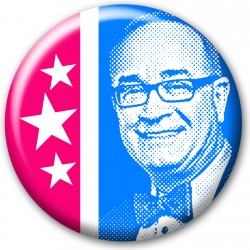
John Strand is co-owner of the High Plains Reader and member of the Fargo School Board. He ran for City Commission in 2014.
HPR: What can Fargo do to retain its young people when they graduate? What can you do as city commissioner to entice them stay here?
John Strand: Young professionals and workers prefer communities that give them a sense of respect and opportunity. Affordable housing, comprehensive mass transit, cultural stimulation and diversity acceptance rank high. Young people, minorities, women and LGBT are being overlooked for good jobs. As commissioners, we need to do more than promise jobs, we need to foster opportunity for our young people. Additionally, I will champion efforts to deliver universally accessible, affordable high speed broadband Internet to the people and to our business community in every sector.
HPR: Do you support the diversion being built in its current path, design and method? If not, how would you stop it? If yes, what will you do to make sure it gets done quickly?
JS: I absolutely support the diversion, but that’s not to say I completely agree with every aspect of its execution. There are potential roadblocks stemming from communication issues. The left hand is not talking to the right hand. Flood insurance is skyrocketing and we need to get everyone on the same page. Minnesota DNR and Richland-Wilkin concerns need to be resolved. Federal funding is at risk unless we resolve those legal challenges. We need a mediator at the table who is going to fight for metro-wide protection and listen to our community and neighbors.
HPR: Do we need more parking in downtown Fargo? If so, how do we make it happen?
JS: Downtown Fargo is growing at an incredible rate. We should be proud of what citizens have accomplished, yet downtown doesn’t begin and end at Broadway. How do we increase parking downtown? By growing the footprint of what downtown is and by supporting light foot and bike transit. We need to encourage transportation options other than driving. If downtown continues to grow at the current rate, we can only expect needs to compound.
HPR: Do you feel we have enough affordable housing in Fargo? What can be done to get more?
JS: Affordable housing can be facilitated through a city partnership with families and individuals who desire living in established, already existing neighborhoods that already have infrastructure in place. We need to step up incentives for home purchases and home improvements, possibly by providing lots for development after cleaning up or demolishing blighted properties. Another avenue to explore would be programs to incent renters to become homeowners so apartment buildings become something akin to homeowner associations. Public land trusts need to be considered whereby the city would hold title to land, and residents own the structure, making ownership more affordable.
HPR: Did you disagree with the ND House failing to pass discrimination protections for LGBT citizens? What would you do as commissioner to protect and promote the rights of LGBT Fargoans?
JS: North Dakota does not need to portray itself like some outdated backwater. This is a civil rights issue that demands the same weight and recognition as the civil rights issues of the past. We can’t proceed forward while leaving some people behind. LGBT equal rights IS the civil rights fight of this generation. My focus as a commissioner will be to embed equal protections and to ensure security in housing, employment and personal safety.
HPR: Are we doing a good enough job in Fargo of making growth manageable?
JS: Growth needs to be balanced. We need to take better care of existing neighborhoods. Smart growth is important, yet letting sprawl shortchange what we already have is shortsighted. An example of negative consequences is exhibited in the need for the school district to begin busing kids from as far south as 13th Ave. northward to middle and high school. Sprawl also stretches our ability to provide police and fire protection to the edges, as well as mass transit. We need to do better – and can.
HPR: Does Fargo get enough credit for its role in the state’s economic success? If not how do we change that?
JS: Fargo is a primary economic engine in the state, partially due to what had been years of emptying small towns and ND’s rural areas. Also, as Fargo continues to grow, we need to keep our sights on the hometowns of our residents. Success in education, health care, career development, technology, arts and culture will pave the way for successes that will ripple out great distances.
HPR: What are the biggest mistakes the Fargo City Commission has made recently? What would you do differently than what has been happening now?
JS: I’m not going to say that our City Commission has made any mistakes. To the contrary, the commission has dealt with and made headway on many difficult issues. That said, Fargo’s strategic, financial and facilities master plan needs to be updated. Then discussions such as a new city hall, convention center, performing arts center, fire protection and police department facilities, etc., can be mapped out and prioritized accordingly.
HPR: Should partisan politics and the political parties be involved in Fargo city elections?
JS: It’s unavoidable, unfortunately, that nonpartisan races such as this for mayor and city commission have become so politicized. I don’t like to be classified as red or blue. I’m a citizen of Fargo and the only way to move forward is with the support of both sides of the aisle.
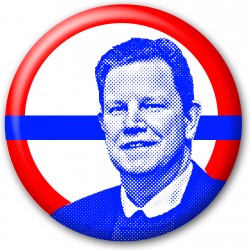
Bradford Shaffer is a former engineer who now works with TrueNorth Steel as a regional sales manager. This is his first run for City Commission.
HPR: What can Fargo do to retain its young people when they graduate? What can you do as city commissioner to entice them stay here?
Bradford Shaffer: Continue to provide the jobs needed, especially in the technical fields. Facilitate startups and provide a culture whereby young people can be excited about where they live. Bike paths, parks and active lifestyles are being provided in Fargo, so I would do more of the same.
HPR: Do you support the diversion being built in its current path, design and method? If not, how would you stop it? If yes, what will you do to make sure it gets done quickly?
BS: I support flood protection for Fargo. The current plan is for a nearly $2 billion project, with costs likely to escalate to twice that. I feel the City Commission should hold the Diversion Authority, mostly appointed, non-elected members, accountable to the people and to reasonable funding. Internal flood protection should be ongoing and properly planned. The recent assessment vote did not clearly represent the will of the people.
HPR: Do we need more parking in downtown Fargo? If so, how do we make it happen?
BS: Yes. Private/public partnership for a parking garage within planned buildings.
HPR: Do you feel we have enough affordable housing in Fargo? What can be done to get more?
BS: No. Housing is scarce, and tax assessments are planned (see above diversion assessment) that will increase housing costs. Vacant areas within Fargo should be explored to maximize use of available land for housing.
HPR: Did you disagree with the ND House failing to pass discrimination protections for LGBT citizens? What would you do as commissioner to protect and promote the rights of LGBT Fargoans?
BS: Our state constitution should protect the rights of all citizens.
HPR: Are we doing a good enough job in Fargo of making growth manageable?
BS: Yes.
HPR: Does Fargo get enough credit for its role in the state’s economic success? If not how do we change that?
BS: I am not sure Fargo requires credit for the economic success of the state. Fargo has a very vibrant, stable economy, and I do not see any need to pursue credit.
HPR: What are the biggest mistakes the Fargo City Commission has made recently? What would you do differently than what has been happening now?
BS: Did not have the proper review with the past police chief. There were major issues within the police force that were discovered during an investigation. Proper review with this person would have provided documentation and a buyout would not have been necessary.
HPR: Should partisan politics and the political parties be involved in Fargo city elections?
BS: No
January 27th 2026
January 27th 2026
January 26th 2026
January 24th 2026
January 16th 2026
__293px-wide.jpg)

__293px-wide.png)


_(1)_(1)_(1)_(1)_(1)__293px-wide.jpg)